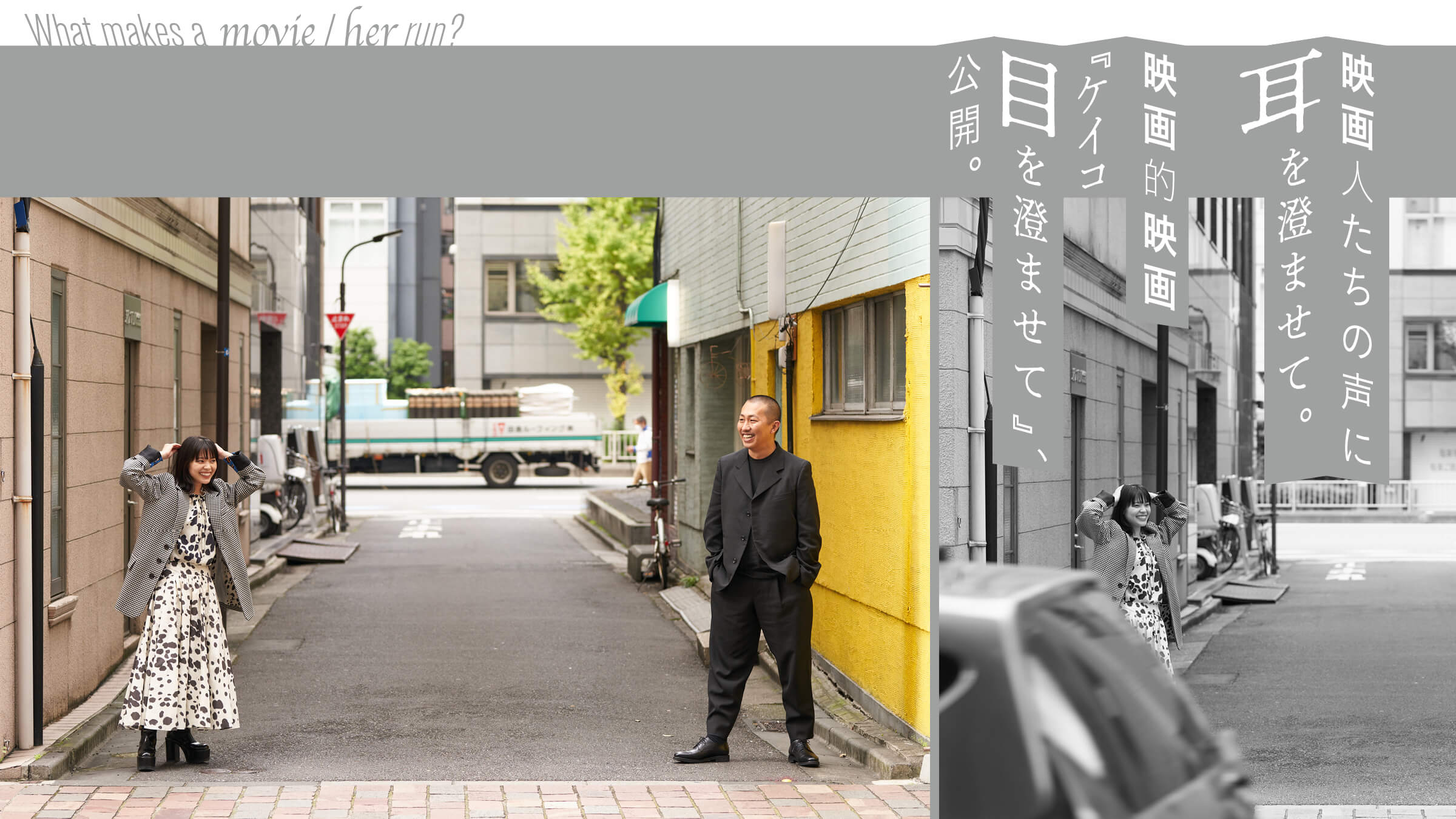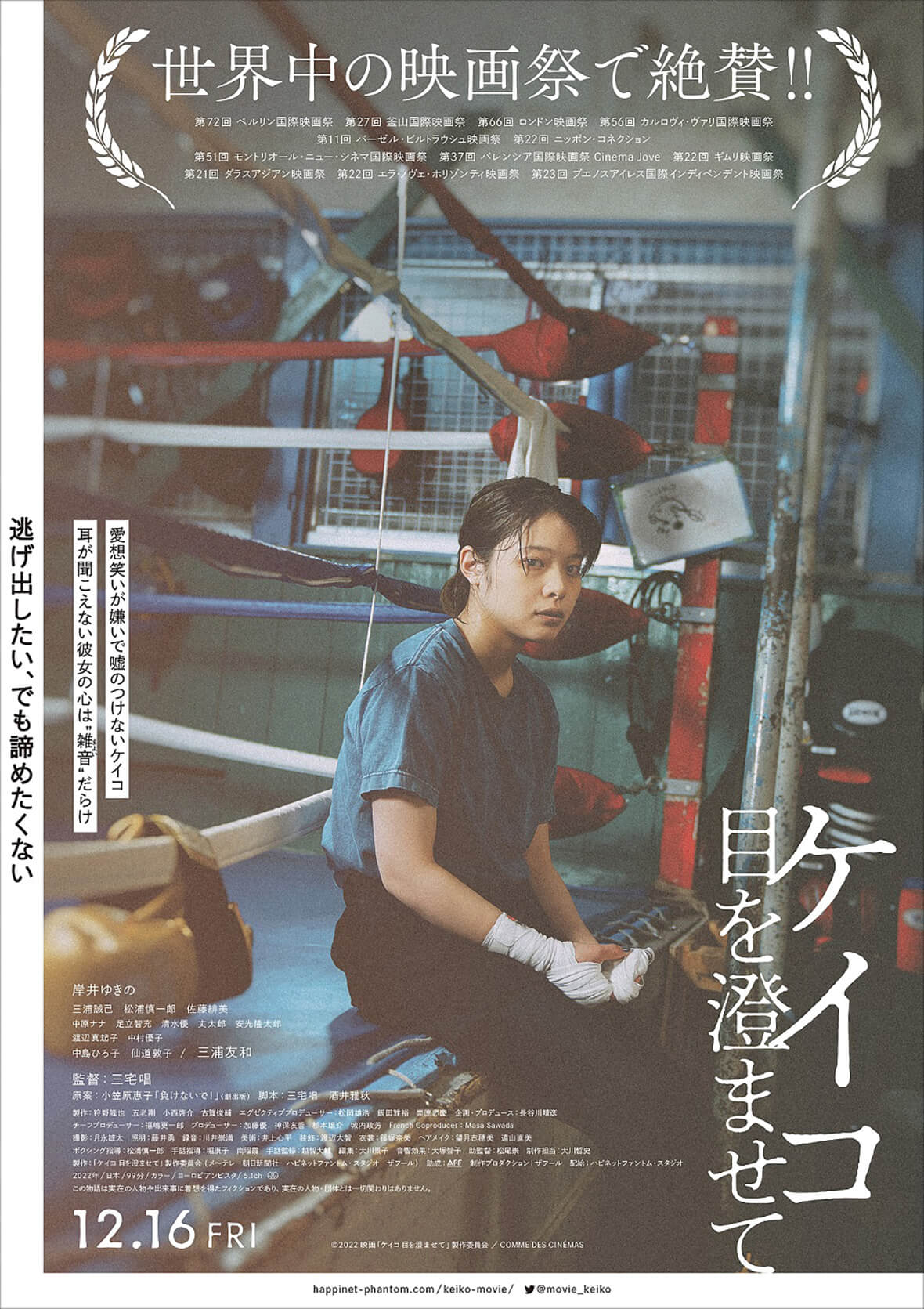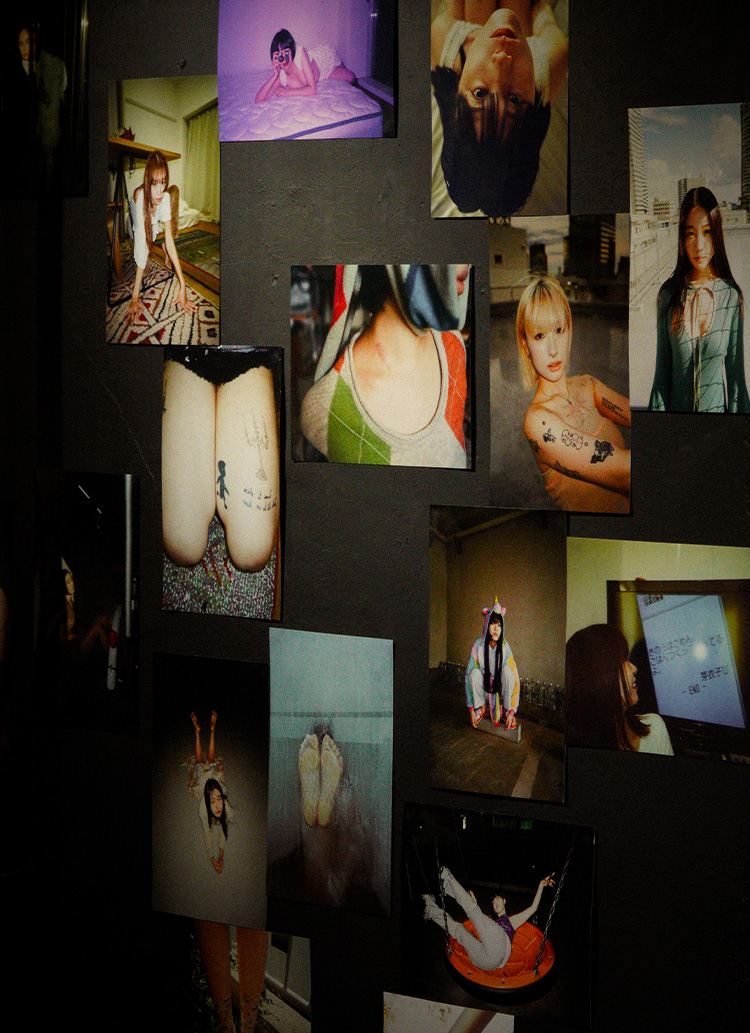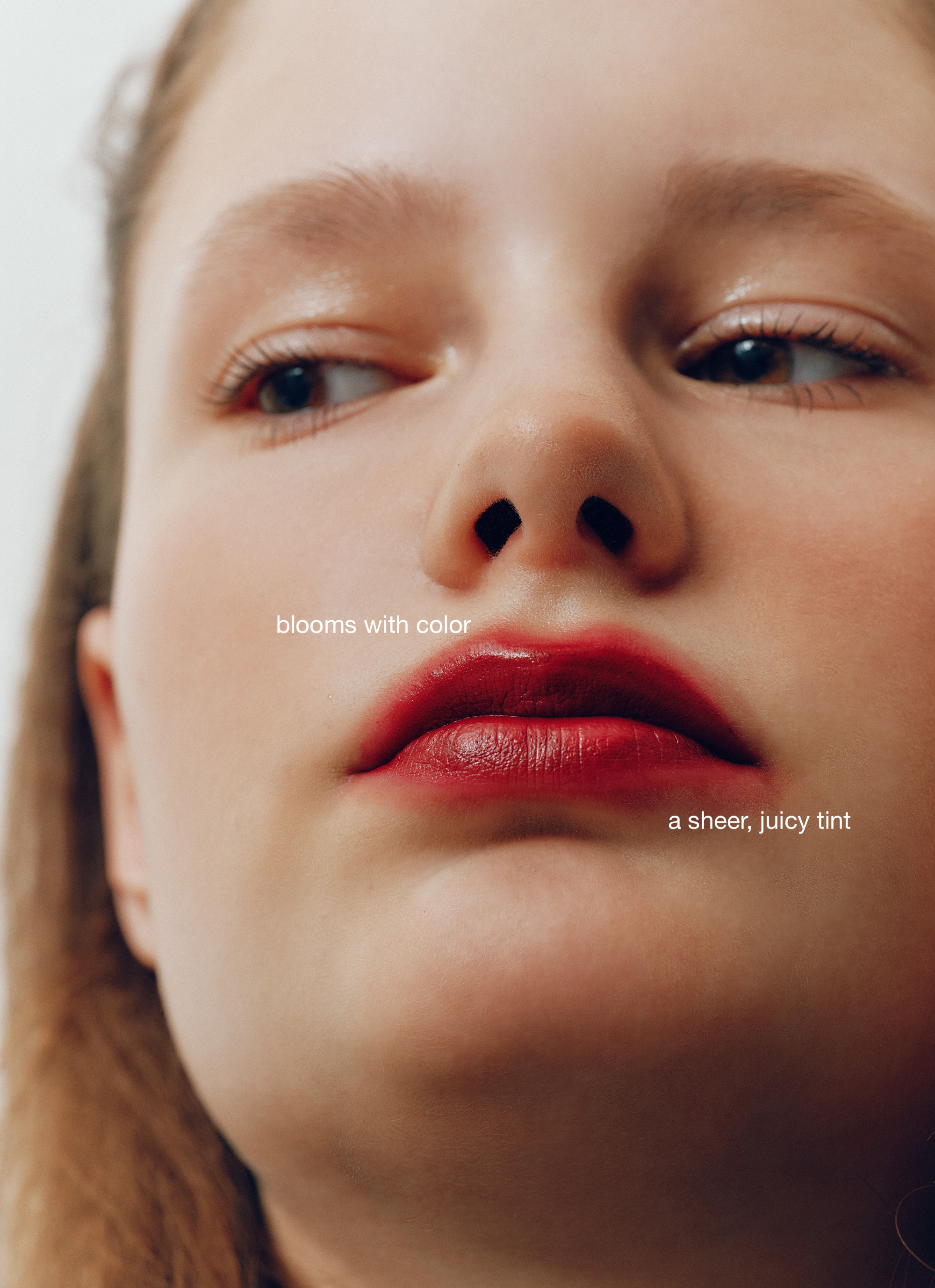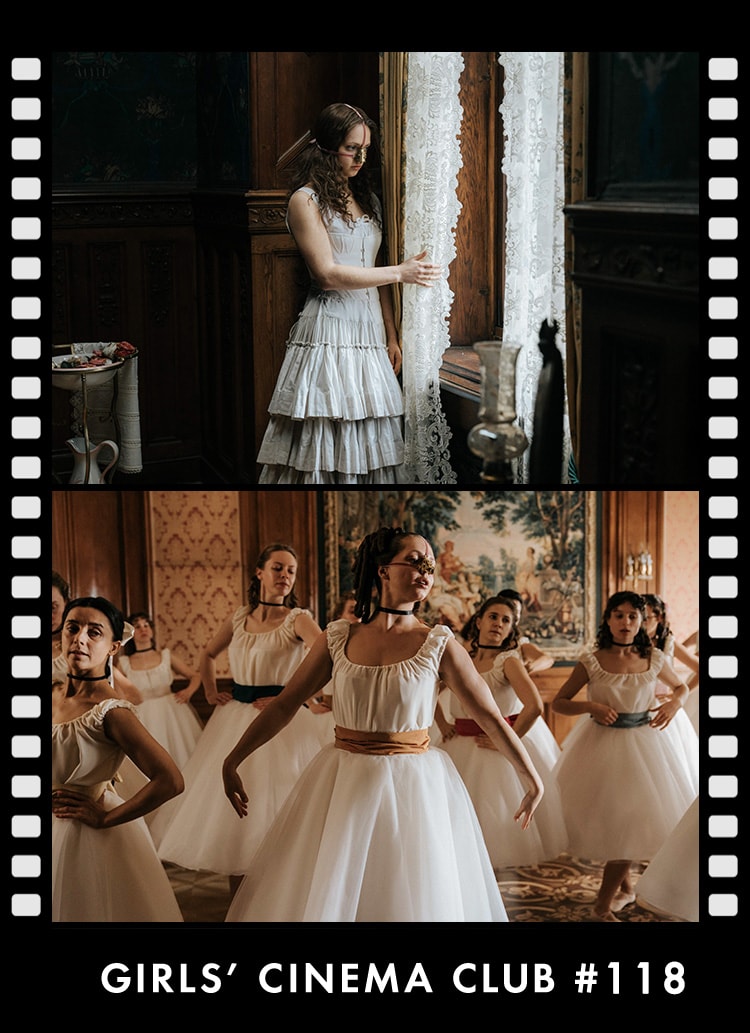. the folds of a deaf person's life that are not dramatized.

I think it is also important for the director Miyake to experience boxing himself using his own body. Isn't it rare for a director to do so?
Kishii:I think it is rare.
Miyake:No, no, it was only 3 months, but I was happy to have someone to talk about boxing with and to have Mr. Matsuura take really good care of my body. He looked at our bodies more than a family member would, and even looked at our mental state to see if we were concentrating on our work. It was inspiring to be able to interact with people in such a way, and I really wish I could have invited Mr. Matsuura for this interview as well.
Kishii:It really is!

For you, boxing and deafness were both new worlds. What was it like for you to be exposed to these worlds through your roles?
Kishii:It was a very fun and interesting experience. (I had seen the dramas "Tell Me You Love Me," "Orange Days," and "The Star Coin" (in which a deaf person is the main character), but there were not many scenes that showed how they get up or what kind of vibrations they feel, so I could see more of their lives. But in the preparation stages for this shoot, when I asked the federation people, they told me. . all about trivial things that are not depicted in the drama because they are not dramatic.
Sounds interesting. For example?
Kishii:For example, there are people who like to go to karaoke, or they listen to hip-hop because it has a strong bass that easily transmits vibrations. Ms. Yamaguchi and Ms. Nagai, who are in the café with Keiko in the play, are actually deaf, but they are very chatty just as they are in the play.
Miyake:Yes, yes. I also enjoyed working with Mr. Yamaguchi and Ms. Nagai.



